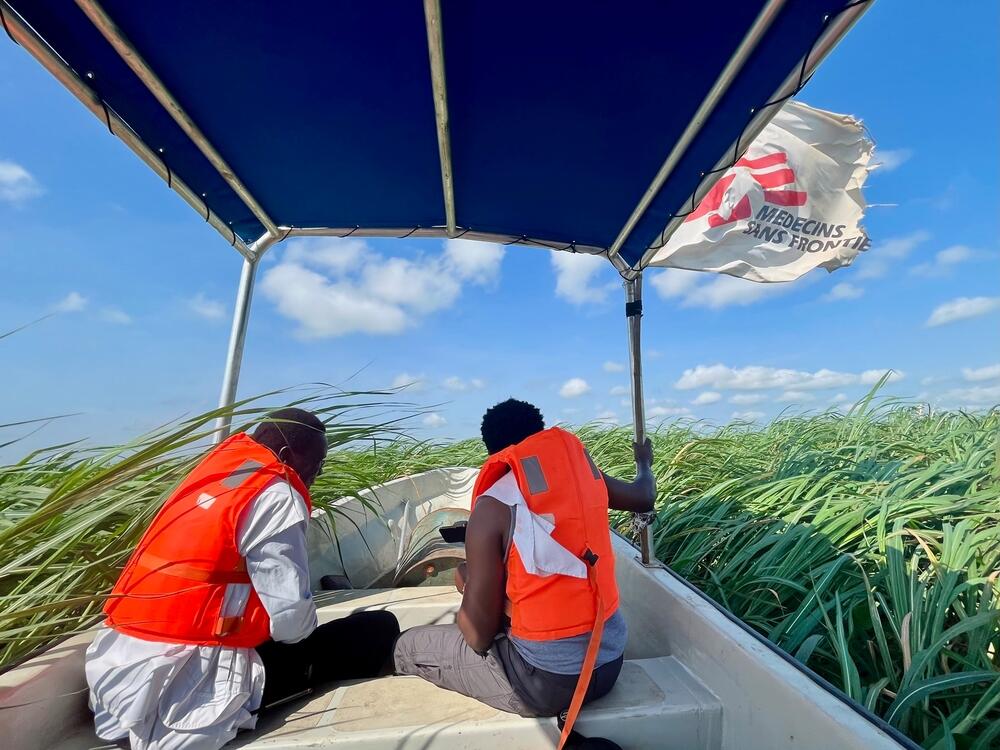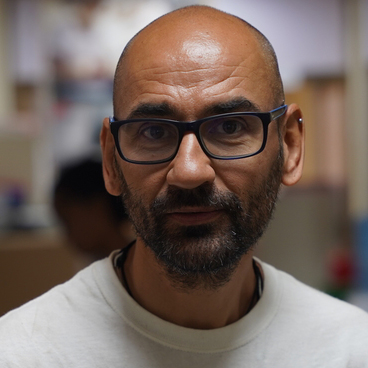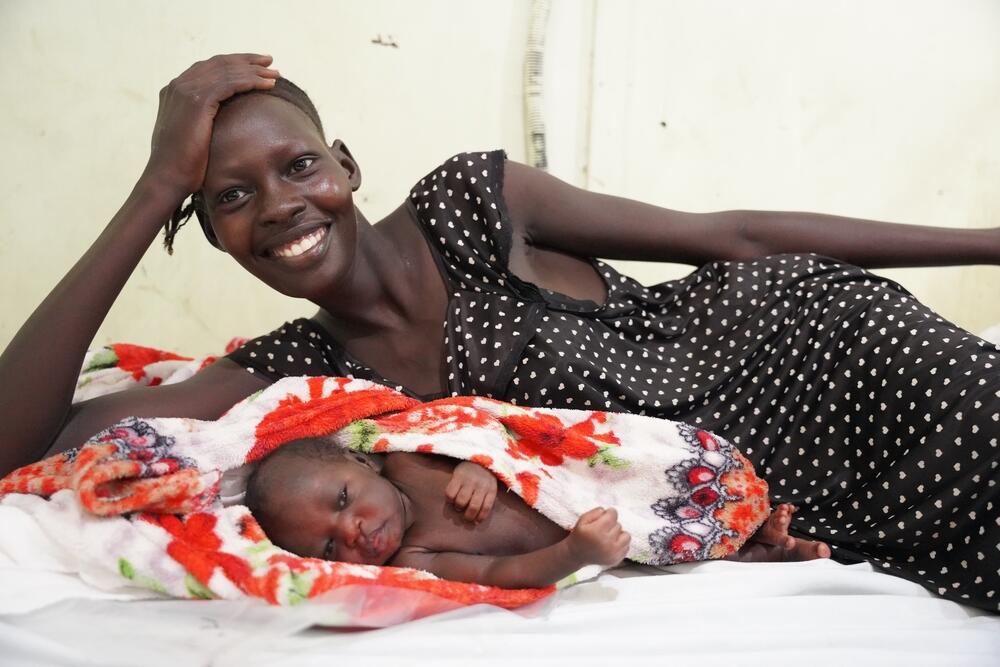South Sudan: Giving birth amid the floodwaters
"The challenge of motherhood in South Sudan starts long before a baby is born," says project coordinator Fernando. However, the Médecins Sans Frontières / Doctors Without Borders (MSF) team in Ulang are working to ensure that women in the area have access to potentially life-saving maternity care.
When the rainy season hits this region, the ground turns to mud and the floodwaters rise, leaving some communities completely isolated for five or more months.
Even in the dry season, the closest healthcare facility can be multiple days’ walk away.
All this means that sexual and reproductive healthcare is not accessible for most women here in Ulang County, in South Sudan's Upper Nile State.
"Our motorboat pushed off the dock less than 20 minutes later. We had all the people and equipment our patient might need..."
Instead, most women deliver their babies in their own homes, accompanied by a traditional birth attendant. This is usually someone from the community who supports women in labour but hasn't had access to formal medical training.
These families have little alternative but to hope the delivery goes smoothly.
Mobile phone networks are patchy. Boats and fuel are expensive, unreliable and few in number. Most journeys are long and the presence of armed groups can mean movement isn't feasible.
If anything goes wrong and the life of the mother or the baby is in danger, a referral to a health facility for maternity care will often be impossible.
Life-saving maternity care, thanks to your support
The generosity of people like you means expert MSF doctors and midwives can help mothers welcome new life on maternity wards across the world.
The MSF hospital in Ulang is the only one in a region that's home to more than 100,000 people – living in Ulang town and in villages along the Sobat River.
One of the services we provide is basic emergency obstetric and newborn care. We also train traditional birth attendants from across the area to help bring mothers to our hospital as soon as they identify that a delivery might be going wrong.
Each of the 443 babies delivered at Ulang hospital last year has a story. These are just two:
A new passenger aboard
“One of our staff members approached me saying his relative had been in labour since yesterday. He didn’t know what to do,” says Hakim Abdulahi Ali, our project medical advisor.
“Our motorboat pushed off the dock less than 20 minutes later. We had all the people and equipment our patient might need. We heard the woman’s village was 40 minutes away. We had no information about the mother or baby. We didn’t know what we might find.
"In a village called Pachuey, we found men, women and children shoring up dykes to keep the floodwaters out.
"We told them we were the MSF team, coming to take the woman in labour. We could see the joy on their faces as they rushed to bring her to the boat. The midwife supervisor assessed her quickly as we began the journey.
"The 50-minute trip back to the hospital seemed like it was taking forever.
"Would the mother deliver while we were still on the boat? What could go wrong if she did? What if her labour continued to drag on? That would be worse still.
"If she needed a caesarean section, the only option would be a referral to another MSF hospital in Malakal, an eight-hour journey away by boat.
"Then the baby was coming."
"We slowed the boat to make the mother more comfortable on her makeshift delivery couch.
"At last, we heard the little one’s first cry. The woman’s mother rushed to hold the baby. She was so happy.
"We were still underway, cruising and taking care of the mother and baby when she delivered the placenta safely 15 minutes later.
"The driver radioed back to base: 'We had a new passenger on board!'"
Twin fighters
“During my morning activities, I started to feel some pain,” one of our patients tells Mananyahleshal Girma Ayelaw, our medical activity manager.
"The woman was 28 weeks into her fourth pregnancy and she knew something was not going well," explains Mananyahleshal.
"She was relatively lucky. It was only a 30-minute journey from where she was living to the MSF hospital in Ulang.
"Even so, she didn’t reach the hospital in time.
"The pain turned out to be labour, and she delivered twin premature babies on the roadside on her way to reach the MSF hospital."
“I am glad for this hospital and everyone who struggled with me to help my babies survive,” says the 32-year-old mother, with a smile on her face.
"When they arrived, the medical team rushed to help the two newborns who had come nearly three months early," continues Mananyahleshal.
"The babies still needed weeks of growing before they were ready for the world. We worked with the mother, monitoring them all closely and mimicking the natural environment of the womb. It took a lot of courage and commitment from her, and strength from the babies.
"After 24 days of work and determination, the twin fighters Nyaboth and Nyadouth were breastfeeding. The little girls and their mother were all healthy.
"After a challenging start, they were able to go home and meet their brothers and sisters."
MSF in South Sudan
In July 2011, South Sudan became the world’s newest country after gaining independence from Sudan. The peace deal that led to the split also ended Africa’s longest-running civil war. But in December 2013, South Sudan was plunged back into chaos as civil war erupted amid a power struggle between the president and his deputy.
The conflict has forced millions of people from their homes and left many without access to basic necessities, such as food, water and healthcare. Médecins Sans Frontières/Doctors Without Borders (MSF) works in hospitals and clinics throughout South Sudan, where we run some of our biggest programmes worldwide.



